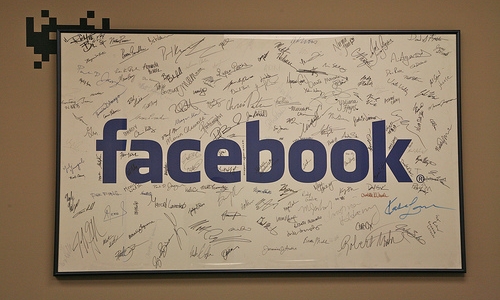The long-standing debate over whether you should connect with employees on Twitter and Facebook is a complex issue that requires careful consideration. But as long as people use these social media tools for such diverse purposes, it’s a debate that you’ll need to form an opinion on.
For example, compare the Facebook or Twitter profiles, activities, and reputations of a typical business owner with those of a typical employee, and you’ll likely find two very different ways of using social media for business. Here are some specific things you should consider about your personal and professional goals, and how they relate to your interactions with employees, to help you decide whether to connect with your staff on Twitter and Facebook.
Arguments for Connecting

Whether you realize it or not, your employees are often your best brand advocates. They live and breathe your brand, so you should let them talk about your company on Twitter and Facebook and let them freely share information, spread messages, and build relationships across the social web. Arguably, there is no more powerful form of word-of-mouth marketing than a happy employee who is given the freedom to express himself or herself about your company.
Be the first to know, sign up here and stay up to date with our latest revenue management news, updates and special offers
Furthermore, connecting with employees on Twitter and Facebook adds a new level of transparency to your business that employees, customers, and prospects expect these days. It gives people a peek into your company’s culture and provides an open line of communication that enhances brand trust and loyalty. Companies would have paid big bucks for this type of access and reach 10 years ago, and now they have it for free, using tools like Facebook and Twitter. Connecting with employees to further the buzz about your brand is a strategic imperative today.
Think of it this way: Why are you on Facebook and Twitter? If you’re interested in connecting with consumers to build your brand and business, then you’ve already answered the question of whether you should connect with employees. You should connect. Everyone can be a vocal brand advocate for your brand; don’t take that opportunity away from your employees!
Arguments Against Connecting

Arguments against connecting with employees on Twitter and Facebook usually start with one of the following questions:
- What if they say something bad about the company?
- What if they publish something that could indirectly embarrass the company?
These are both valid questions, but they’re not definitive arguments against connecting with employees on Twitter and Facebook. If you develop a social culture of brand advocacy internally, then your employees will understand what they should and should not post online.
Creating a social media policy that’s easy to understand and abide by sets everyone up for success. Draft an easy to follow and non-threatening set of guidelines for employees to participate in social media and connect with you on Twitter and Facebook. When behaviors don’t comply with the guidelines, provide a 360-degree feedback loop to get your employees back on track.
The bottom line: If you think you can avoid some scandal or negative publicity by not connecting with employees on Twitter and Facebook, you’re wrong. Burying your head in the sand is not a strategy that works particularly in life or on social media.
Making Your Decision

If you use your social media profiles as a tool to build your career and business, then the content you publish on those profiles should be appropriate and relevant to your employees. However, if you use your Twitter and Facebook profiles to share extremely personal stories and photos that you want to keep private, then connecting with your employees is not a good idea. The choice might be easily made based on how you use these tools.
However, the power of social media marketing is incredible, so if your activities on Twitter and Facebook aren’t meant for public consumption, then you should either clean up your act so you’re open to social media opportunities or you should direct all of your business-related social media activities to your company Facebook Page or a separate business Twitter profile. In other words, if you can’t mesh your personal and professional lives through your existing social media profiles, then create distinct profiles and pages for each so you don’t miss the opportunities that social media presents to build your business.
Always follow the motto: if it’s not fit for your boss, your employees, or your mother to see, don’t publish it online! If you follow that motto, then there is no reason not to connect with your employees on Twitter and Facebook.





